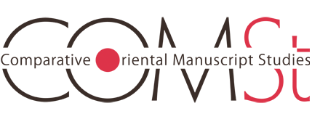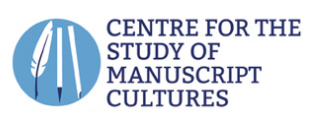About COMSt
The cooperative network Comparative Oriental Manuscript Studies is born from the European Research Foundation Research Networking programme of the same name. Funded during the years 2009-2014, it aimed at facilitating cross-cultural academic dialogue and active exchange in the field of oriental manuscript studies, here defining 'oriental' as all non-occidental (non-Latin-based) manuscript cultures which have an immediate historical (‘genetic’) relationship with the Mediterranean codex area.
Such exchange on a European level had become an urgent desideratum. Standards in all subfields of manuscript studies differ from one study area to another and from one national scholarly tradition to another. Oriental studies are considerably behind Occidental manuscript studies, where, e.g., Greek and Latin philology have reached a high standard. Since some regional and linguistic cultures have been studied more intensively than the others in different aspects, an exchange within the framework of oriental philology gave possibility for Europe-wide development through network activities.
The co-ordination on the one hand enabled a high degree of standardization between the cultural and language areas and on the other hand facilitated the explication of culture-specific methodologies. In some areas, already advanced in classical and medieval European philology, such as, e.g., digital philology including digitisation of manuscripts and computer-supported text-editorial practices, Oriental studies are still at the very beginning.
Not only specialists working in different cultural fields but also those dealing with different subdisciplines of manuscript studies combined their expertise working in five internationally composed research teams (1: codicology and palaeography, 2: philology/text criticism, 3: digital approach to manuscript studies, 4: cataloguing, 5: manuscript preservation). In a series of workshops, meetings and conferences, common approaches were achieved that will serve as standard for contemporary and future Orientalists and manuscript scholars.
Please check the ESF RNP COMSt concept brochure (2009) for more information.
Following the decision of the Steering Committee and associated scholars, the Network has decided to continue its activities also after the completion of the ESF RNP programme in 2014.
Use the menu on the right to find out more about the network present activity, membership and meetings, and the network history during the years 2009-2014.


